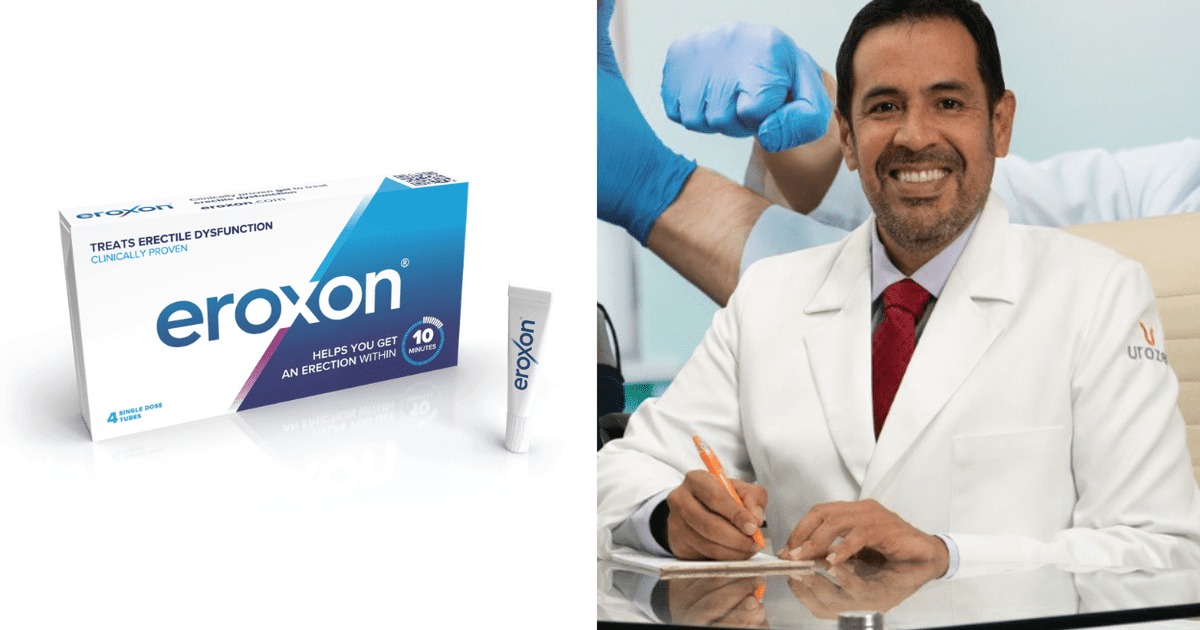Introduction to Men’s Health and Erectile Dysfunction
Men’s health encompasses a wide array of physical, mental, and sexual well-being issues. Erectile dysfunction (ED) stands out as a particularly significant concern. ED, characterized by the persistent inability to achieve or maintain an erection sufficient for satisfactory sexual performance, affects a substantial proportion of the male population, particularly those over 40.
This condition impacts not only quality of life and intimate relationships but also serves as a potential marker for other underlying health issues, including cardiovascular disease, diabetes, and hormonal imbalances.
The Broader Context of ED in Men’s Health
The importance of addressing ED extends beyond sexual health. It’s intrinsically linked to overall health and wellness, making it a critical focal point in men’s health. Prostate health, hormone replacement therapy, and testosterone therapy are all interconnected with the effective management and treatment of ED.
Early diagnosis and intervention can lead to improved outcomes, highlighting the necessity for regular health check-ups and open communication with healthcare providers.
Recent Advancements in ED Treatment
Medical research has led to innovative ED treatments, offering new hope for those affected. These include:
- Pharmacological therapies (like Tadalafil)
- Lifestyle modifications
- Psychological support
- Cutting-edge medical devices
Ongoing studies continue to enhance our understanding of the complex factors contributing to ED, paving the way for more personalized and effective treatment strategies.
Understanding Erectile Dysfunction: Causes and Risk Factors
Erectile dysfunction is a prevalent condition significantly impacting men’s health and sexual well-being. To address it effectively, it’s essential to comprehend its multifaceted causes and risk factors.
Physiological Factors Contributing to ED
Several underlying medical conditions can contribute to ED:
- Cardiovascular diseases (e.g., hypertension, atherosclerosis)
- Diabetes
- Hormonal imbalances (particularly low testosterone)
- Obesity and metabolic syndrome
Lifestyle Factors Influencing ED
Lifestyle choices play a significant role in the development of erectile dysfunction:
- Smoking
- Excessive alcohol consumption
- Substance abuse
- Poor diet and lack of physical activity
- Certain medications
Psychological Aspects of ED
Mental health conditions can significantly impact erectile function:
- Depression
- Anxiety
- Stress
- Relationship issues
Understanding these multifaceted causes and risk factors is crucial for developing effective treatment strategies and improving men’s sexual health and overall quality of life.
Traditional Treatments for Erectile Dysfunction
Erectile dysfunction has long been a significant concern in men’s health, prompting the development of various treatment methods over the years.
Oral Medications: The Cornerstone of ED Treatment
Oral medications have been a primary approach in treating erectile dysfunction. Drugs such as Viagra (sildenafil) and Cialis (tadalafil) are phosphodiesterase type 5 (PDE5) inhibitors that enhance the effects of nitric oxide, a natural chemical the body produces to relax muscles in the penis.
These medications:
- Improve blood flow to the penis
- Facilitate erections in response to sexual stimulation
- Are generally effective but must be taken with caution due to potential side effects
Lifestyle Modifications for Managing ED
Lifestyle changes play a critical role in managing erectile dysfunction:
- Regular physical activity
- Maintaining a healthy diet
- Avoiding smoking and excessive alcohol consumption
- Weight management
- Managing underlying conditions like diabetes and hypertension
Psychological Therapies in ED Treatment
Psychological interventions are essential, particularly when ED is rooted in mental health issues:
- Counseling and sex therapy
- Cognitive-behavioral therapy (CBT)
- Addressing stress, anxiety, or depression
While these traditional treatments have provided relief for many men, they have limitations. This underscores the importance of ongoing research and recent advancements in the field.
Pharmaceutical Advancements: Tadalafil and New Medications
Recent years have seen significant strides in the pharmaceutical management of erectile dysfunction, with Tadalafil emerging as a leading treatment option.
Tadalafil: A Game-Changer in ED Treatment
Tadalafil, known by its brand name Cialis, offers several advantages:
- Extended duration of action (up to 36 hours)
- Flexibility in dosing
- Improved spontaneity in sexual activity
- Generally well-tolerated with fewer side effects
Comparing Tadalafil to Other ED Medications
Tadalafil stands out among PDE5 inhibitors:
| Feature | Tadalafil | Other PDE5 Inhibitors |
|---|---|---|
| Duration of Action | Up to 36 hours | 4-5 hours on average |
| Onset of Action | 15-45 minutes | 30-60 minutes |
| Food Interactions | Minimal | Can be significant |
Other Pharmaceutical Advancements
Beyond Tadalafil, other promising developments include:
- Avanafil: Rapid onset and selective enzyme inhibition
- Soluble guanylate cyclase (sGC) stimulators like riociguat
- Rho-kinase inhibitors: Targeting different mechanisms of penile smooth muscle tone
These pharmaceutical advancements reflect a growing understanding of erectile dysfunction’s complexities and a commitment to improving men’s sexual health through innovative treatments.
Non-Pharmaceutical Treatments: Innovations in Therapies and Technologies
Recent advancements in men’s health have introduced innovative non-pharmaceutical treatments for erectile dysfunction, offering alternatives to traditional medication.
Shockwave Therapy for ED
Shockwave therapy, or low-intensity extracorporeal shockwave therapy (LI-ESWT), is a non-invasive procedure showing promising results:
- Uses acoustic waves to stimulate blood flow and tissue regeneration
- Particularly effective for mild to moderate ED
- 70% of participants in recent studies reported improved erectile function
- Effects can last up to a year
Platelet-Rich Plasma (PRP) Therapy
PRP therapy is an emerging treatment gaining traction:
- Involves injecting a concentration of the patient’s own platelets into penile tissue
- Stimulates healing and regeneration
- Preliminary studies show improved erectile function in 60% of participants
Advancements in Penile Implants
For severe ED cases, penile implants remain a reliable option:
- Modern implants designed for more natural appearance and function
- Improved surgical techniques reduce recovery times and complications
- Over 90% patient satisfaction reported in recent studies
These non-pharmaceutical advancements highlight the importance of ongoing research and innovation in men’s health, providing diverse options for managing erectile dysfunction.
Lifestyle and Dietary Interventions: The Role of Holistic Health
Recent studies underscore the significant impact of lifestyle and dietary changes on managing and potentially reversing erectile dysfunction.
Exercise and Physical Activity
Regular physical activity plays a crucial role in improving erectile function:
- Aerobic exercises (e.g., running, swimming, cycling) improve blood flow and reduce ED risk
- Strength training and flexibility exercises promote overall physical health
- Consistent exercise enhances cardiovascular health, directly benefiting erectile function
Dietary Choices for Better Sexual Health
A balanced diet can significantly impact erectile function:
- Mediterranean diet, rich in fruits, vegetables, whole grains, and lean proteins
- Emphasis on healthy fats from sources like olive oil and nuts
- Reducing intake of processed foods, sugary snacks, and excessive alcohol
Stress Management and Sleep Quality
Overall lifestyle modifications are equally important:
- Stress management techniques like mindfulness meditation and yoga
- Establishing a regular sleep schedule (7-9 hours nightly)
- Proper sleep patterns help regulate hormones and reduce ED risk
Integrating these lifestyle and dietary changes as a complementary approach to conventional ED treatments, including medications like Tadalafil, can enhance sexual health and overall well-being.
Psychological and Emotional Support: Addressing Mental Health in ED Treatment
The treatment of erectile dysfunction extends beyond physical interventions, highlighting the critical role of psychological and emotional support.
Cognitive-Behavioral Therapy (CBT) for ED
CBT has shown significant efficacy in treating ED:
- Targets negative thought patterns and behaviors contributing to sexual dysfunction
- Reduces anxiety and depression often associated with ED
- Empowers men to regain confidence in their sexual health
- Particularly beneficial when combined with medical treatments like Tadalafil
Couples Counseling and Relationship Therapy
Addressing the relational aspects of ED is crucial:
- Fosters open communication and mutual understanding between partners
- Alleviates relational tension caused by ED
- Enhances overall efficacy of ED treatments
- Helps couples navigate challenges together, reinforcing emotional bonds
Integrated Approach to ED Treatment
Combining medical treatments like Tadalafil with psychological support ensures a well-rounded approach:
- Addresses both physical and emotional aspects of men’s health
- Recognizes the interplay between mental and sexual health
- Leads to more sustainable improvements in erectile function and overall well-being
Future Directions and Ongoing Research in Erectile Dysfunction Treatment
The field of erectile dysfunction treatment continues to evolve, with ongoing research and technological advancements offering new hope for those affected.
Regenerative Medicine Techniques
Promising areas of research include:
- Stem cell therapy
- Platelet-rich plasma (PRP) injections
- Aim to repair and regenerate damaged penile tissues
- Early clinical trials show encouraging results, though further studies are needed
Gene Therapy for ED
Cutting-edge research explores genetic approaches:
- Targeting specific genes regulating erectile function
- Potential to address root causes of ED at a molecular level
- Preclinical studies demonstrate potential, but more research is required
Advancements in Pharmaceutical Treatments
Ongoing pharmaceutical research focuses on:
- Developing new oral medications with improved efficacy and reduced side effects
- Novel drug delivery systems (e.g., topical gels, transdermal patches)
- Enhancing existing treatments like Tadalafil for better outcomes
Holistic Approaches to ED Management
Future research aims to better understand:
- Interplay between physical and psychological factors in ED
- Role of lifestyle modifications in conjunction with medical treatments
- Personalized treatment strategies addressing individual patient needs
Hormone Therapy Research
Ongoing investigation into hormonal treatments:
- Exploring the role of testosterone therapy in ED treatment
- Investigating hormone replacement therapy for specific ED cases
- Assessing long-term benefits and potential risks of hormonal interventions
Conclusion: The Future of Erectile Dysfunction Treatment
As we look to the future, the field of erectile dysfunction treatment, including advancements in medications like Tadalafil, offers hope for more effective and personalized options. The integration of pharmaceutical innovations, lifestyle interventions, psychological support, and cutting-edge therapies promises to significantly improve the quality of life for men affected by ED.
This comprehensive approach to treating erectile dysfunction reflects a deeper understanding of men’s health, acknowledging the complex interplay of physical, psychological, and lifestyle factors. As research continues and new treatments emerge, individuals struggling with ED can look forward to more tailored, efficient, and holistic solutions to improve their sexual health and overall well-being.



